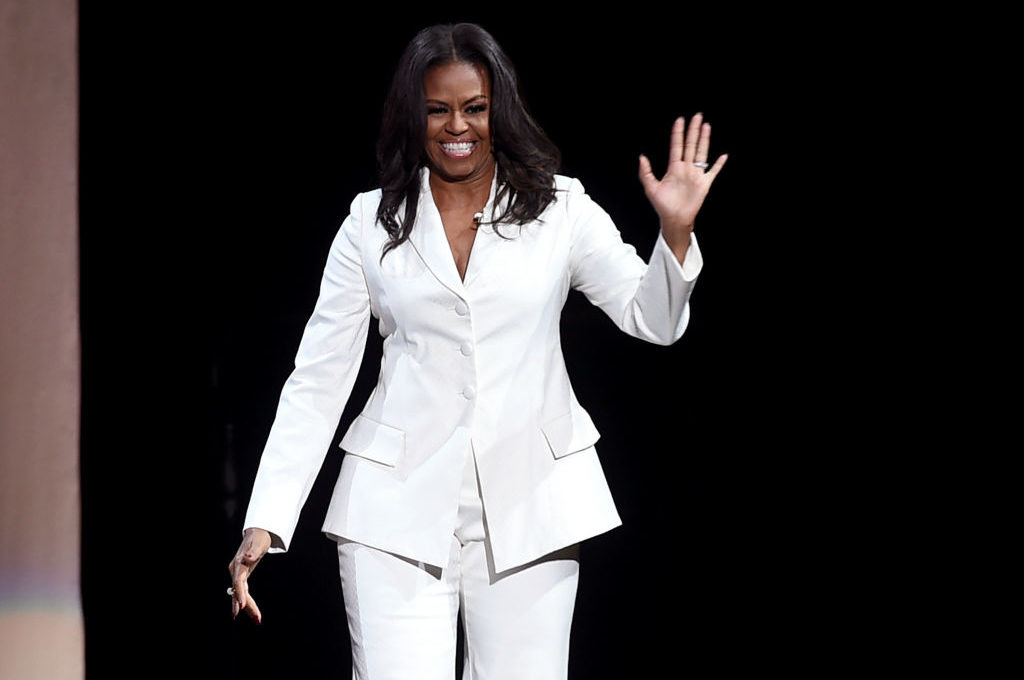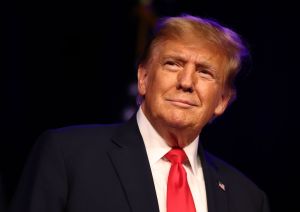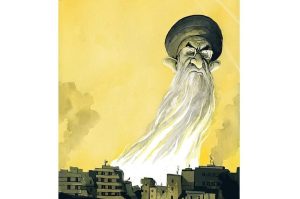When Michelle Obama’s husband left office in 2016, Van Jones summarized eight years of CNN fawning by getting almost teary-eyed when discussing his feelings for her. Every other news outlet save Fox felt the same. The love fest resumes with the publication of her autobiography, Becoming. Given Michelle Obama’s role in Barack Obama’s transformation, and her behavior towards allies and others as First Lady, she does not merit unexamined adulation.
Obama emphasizes that her social mobility depended on growing up in an intact working family with parents who prioritized the educational success of their children. Her liberal admirers might apply this insight to their understanding of the persistence of a black underclass. There is much to admire in the image of her rise from humble beginnings. But the real story of how she rose, and who she became, exposes notable warts.
The Obamas were unwilling to participate in informal interactions customary for Washington politicians. In 2012, the New York Times noted that Michelle Obama ‘shared the president’s ambivalence about political chores and the back-patting and schmoozing that can help get things done in Washington.’ She also ‘tried to wriggle out of some ceremonial events that she saw as not having much purpose, including the annual luncheon for Congressional spouses held by the First Lady since 1912.’
Nor did Michelle Obama show interest in building support in Congress among Democrats who did not share her progressive views. In 2009, in exchange for a key vote on an energy bill, President Obama’s chief of staff Rahm Emanuel, without asking the First Lady’s permission, promised Allen Boyd, a Florida congressman, that she would appear at an event. Annoyed, Michelle Obama attended the event, but registered her broader disapproval by refusing to commit to campaigning for the following year’s midterm elections.
Her reluctance to campaign left Mr Emanuel incredulous; it was vital to her husband’s presidency that the Democrats maintained control in the Congress. As the election neared, she reluctantly recanted. Still, Mrs Obama agreed to many fewer campaign appearances than the political team had wanted. ‘She basically agreed to do nothing,’ one aide said.
The growing chasm between Emanuel and Michelle Obama was a catalyst for his departure. Similarly, her relationship with press secretary Robert Gibbs was increasingly tense. Just before the 2010 elections, it was reported that Michelle Obama had told Carla Bruni-Sarkozy, wife of French president Nicolas Sarkozy, that living in the White House was ‘hell.’ Gibbs went to great lengths to squash the story, only to be told that the First Lady was troubled by his response.
‘That’s not right, I’ve been killing myself on this, where’s this coming from?’ Mr Gibbs yelled, adding expletives. He, too, left the White House just after the 2010 elections.
Michelle Obama showed the same uncompromising attitude towards gay rights supporters. At a 2013 fundraising event, an LGBT activist named Ellen Sturtz interrupted her talk and called for President Obama to follow through on his longstanding promise to issue an executive order barring federal contractors from discriminating against employees based on sexual orientation or gender identity. Michelle Obama left the lectern and approached Sturtz.
‘Listen to me, or you can take the mic, but I’m leaving,’ she said harshly. ‘You all decide. You have one choice.’ The audience, fearing that Obama would leave, demanded instead that the protester leave. ‘She came right down in my face,’ Sturtz told the Washington Post. ‘I was taken aback.’
How differently most of the media treated Michelle Obama’s actions, compared to candidate Donald Trump when he had a Latino reporter escorted out of a campaign event. The liberal press universally condemned Trump as a bully, even though he let the reporter back in and answered his questions. No one characterized Michelle Obama’s treatment of Ms Sturtz as bullying.
Even more troubling, virtually all reports in the pro-Obama national media neglected to mention that this incident occurred at a private fundraiser in the home of Nan Schaffer and Karen Dixon, a high-profile couple in the LGBT community. Indeed, the majority of those in attendance, paying $500 or more, were supporters and activists in the LGBT community. You can understand why guests like Ms Sturtz would have been upset when the First Lady gave a stump speech and was unwilling to address their concerns.
The liberal press were similarly uncritical about Michelle Obama’s efforts to improve the eating habits of poor children. The Department of Agriculture, which administers the food-stamp program, found that almost 10 percent of household food-stamp expenditures were on sweetened beverages and another 10 percent on desserts, salty snacks, candy and sugar. Michelle Obama has been applauded for her efforts to promote fresh fruits and vegetables, which has led to government to increase the value of food stamps spent on these items.
Meanwhile, a number of states and cities, including Maine, Minnesota, and New York City, have focused on an alternative strategy, excluding sweetened beverages and junk food from the allowable food-stamp purchases. When researchers examined whether banning sugary drinks would affect obesity rates more than incentivizing fruits and vegetables, they found that the incentive program was less effective. Banning sugary drinks, they found, would ‘significantly reduce obesity prevalence and Type 2 diabetes incidence, particularly among ages 18 to 65 and some racial and ethnic minorities.’
While heavy lobbying by beverage companies successfully convinced the Department of Agriculture to block the exclusion strategy, Michelle Obama was silent. Instead, she focused exclusively on what proved to be the failed strategy of incentivizing fruit and vegetable purchases. Did she believe that food-stamp restrictions would be too paternalistic? We will never know the reason for her silence, because a fawning liberal media had no interest in asking her this or any other tough question.
The liberal media also glossed over her racial beliefs. In her Princeton senior thesis, Michelle Obama specified that she believed the embrace of multicultural relationships had led too many black professionals to reject solidarity with the larger black community:
The more respondents became integrated/assimilated, the more they become comfortable with Whites, the less motivated they became to benefit the Black community, and the less positive their attitudes became towards the Black lower class in general.
This perspective may well have affected her attitude when she married Barack Obama. Here was ‘Barry,’ with his multicultural past, and his white mother and white grandparents. I believe that Michelle gave crucial support to multicultural Barry’s desire to transform himself into black Barack.
Reverend Wright, the Obamas’ pastor for twenty years and godfather of their children, was part of this. Wright’s anti-white sermons are still troubling, as is Michelle Obama’s comment during the 2008 primary campaign: ‘For the first time in my adult life, I am really proud of my country.’ I think it would be a mistake, however, to chalk all this up to an anti-white attitude. Rather, I believe it reflected a need to sustain black solidarity, and to remember how, in the not too distant past, US society was deeply racist. As a student, Michelle Obama had fears about the waning affiliation of black Princeton graduates. No wonder that she saw Wright’s church as an antidote, not only for her children, but also for the ‘integrated/assimilated’ Barack.
If he had balanced his blackness with a positive appreciation of his white upbringing, Barack Obama would have been truly a transformational president. Think how different the country would have been if he had provided consistently positive narratives about his grandparents, and maintained the notion that he was the first multicultural president. Instead, what we learned during his first presidential campaign was that his grandmother made racist statements that reflected her being a ‘typical white person,’ and that her kind of reactions are ‘bred into our experiences that don’t go away.’
I sympathize with Michelle Obama’s hope that successful black Americans maintain solidarity with less fortunate black Americans. I sympathize with her need to make sure her children understand the racist past, and ongoing discrimination in the present. I understand why her supporters see her as a positive model for black women. I am, however, disappointed that her desires aided Barack Obama in blacking out his white background.
Robert Cherry is a professor of economics at Brooklyn College and the CUNY Graduate Center.


















